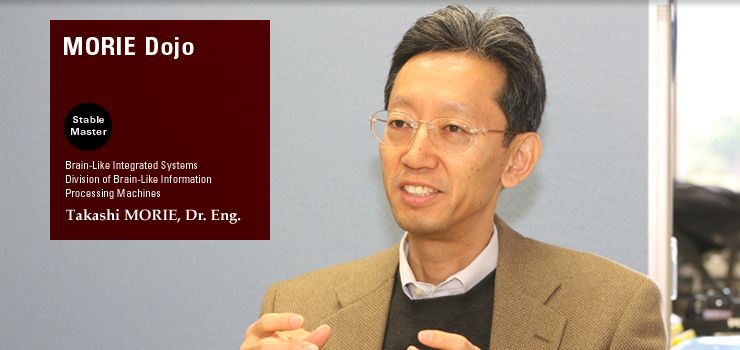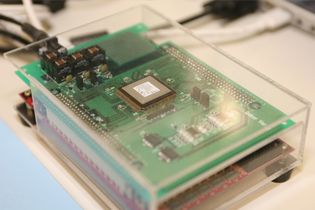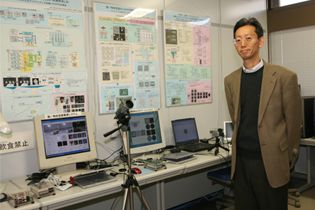 |
| |
 |
| This
is the only laboratory in the School of Life Sciences
and Systems Engineering that is undertaking full-scale
research on the design of LSIs that incorporate analogue
circuits. We are conducting basic research on creating
models of brain function, incorporating these into integrated
circuits and using them to make robots and machines
that function in a human fashion. Convinced that combinations
of merely 0 and 1 can never approach the human being,
no matter how large the computer, we aim to develop
a high-functioning integrated system that combines analogue
and digital circuits just as are used in the brain.
Using visual and image processing as one key support,
our goal is to develop simple models of the process
up to the point where information is cognitively recognized
in the brain and to develop chips that can recognize
images. We are involved in a broad range of educational
and research activities from design and evaluation of
analogue and digital integrated circuits to systemizing
technology. |
 |
|
 |
| This
is an LSI design program suitable for people who want
to create brain function models and apply them to hardware.
Making the most out of our laboratory's special features,
we initiate students in the design basics for LSIs that
incorporate analogue technology. While automation through
programming is well advanced in the design of conventional
digital LSIs, this program gives students hands-on experience
in LSIs with analogue type functions that cannot be
achieved through exclusively digital LSIs. Students
not only learn formulas and theory but also acquire
practical technology through circuit simulations. Although
a basic grounding in electric circuits is necessary,
we welcome students from other disciplines of study. |
 |
|
|
|
|